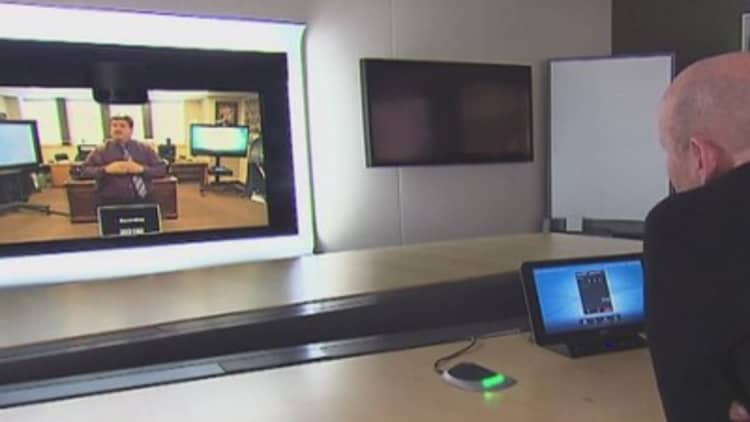
Thanks to revolutions in technology and high-speed internet connections, the way we are learning is changing. The traditional method of passing on knowledge – either in a packed lecture hall or dusty classroom – is rapidly being overtaken.
Today, a student with an internet connection in Buenos Aires or Lagos can log on, interact with, and learn from an academic in New York City or London.
"If you were a doctor a hundred years ago and you go back [to the present] now, you can't be a doctor," Wim Elfrink, Executive Vice President, Industry Solutions and Chief Globalisation Officer of Cisco Systems, told CNBC's Innovation Cities. "But if you were a teacher a 100 years ago, and you go back now to the classroom, you can still be a teacher. Education hasn't really embraced yet what technology can enable."
The New York Academy of Sciences has teamed up with Cisco to establish the Global STEM (science, technology, engineering and math) Alliance. Using Cisco's TelePresence technology – an immersive audio visual conferencing system – the partnership is designed to enable the dissemination of scientific knowledge and academic resources throughout the world.
(Read more: How the business of bionics is changing lives)
"Education used to be thought of as a teacher sort of opening up a kid's brain and pouring in the knowledge," Dr Meghan Groome, Executive Director of Education and Public Programs at the New York Academy of Sciences, said. "Now, if you have a mobile phone and a wireless network, you can basically build whatever type of education you want for yourself."
"It's very simple to connect you in with a Nobel Laureate, or a high schooler who's on a really great, award winning robotics team," Groome added.
Staff at Boston University are looking to use this kind of technology to create immersive, stimulating learning experiences.
(Read more: Apps that make your home smarter)
"We're engaging our students in teams, using virtual, video technology, to ensure that we have conversation that goes beyond person to person," Ken Freeman, Professor and Dean of Boston University School of Management, told CNBC. "We engage everyone in the classroom in the discussion."
The demand for online learning is rapidly increasing. Coursera, an education company founded by academics at Stanford, is helping to broaden access to learning. It offers free online courses taught by academics at leading global institutions such as Yale, Princeton and Edinburgh.
Today, over 5 million students from 190 countries are studying Coursera courses which cover everything from astronomy to philosophy. If they complete their course successfully, they are awarded a certificate.
(Read more: Basque Country reaches out to the elderly)
As learning moves from the lecture hall to the laptop, the potential for even more children to gain the benefits of education is becoming greater.
"In five years," Cisco's Elfrink says, "we can give 100% of kids in the world the right to education."
Follow us on Twitter: @CNBCWorld




